It took 30 years to build a secret Cold War nuclear bunker for Josip Broz Tito, the first President of Yugoslavia. One year after the construction was finally completed, the founder of Titoism died. The bunker is now open to the public as a museum and a space for modern art exhibitions.
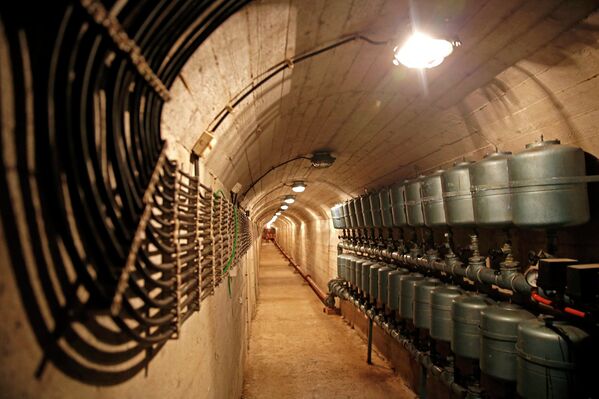
The construction of the bunker, which "even Eisenhower did not have", started in 1949, after Tito’s break-up with Stalin.
Above: A tunnel with electric switches are seen in Josip Broz Tito's underground secret bunker (ARK) in Konjic.
Above: A tunnel with electric switches are seen in Josip Broz Tito's underground secret bunker (ARK) in Konjic.
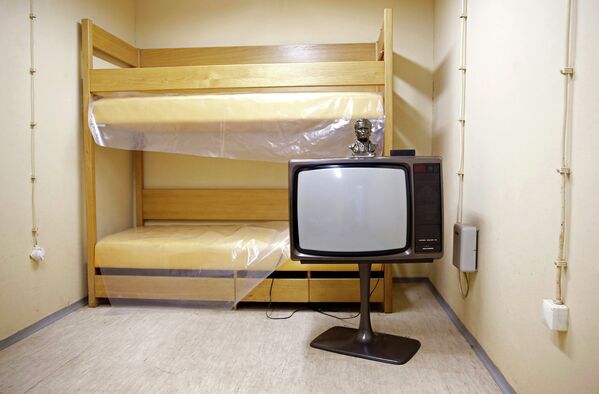
Communist Yugoslavia’s strongman ordered the building of the bunker to protect the country’s elite from a nuclear strike. The existence of the shelter which could withstand a nuclear attack was known only to four generals and the group of soldiers guarding it.
Above: A room with a television is seen in Josip Broz Tito's underground secret bunker (ARK) in Konjic.
Above: A room with a television is seen in Josip Broz Tito's underground secret bunker (ARK) in Konjic.
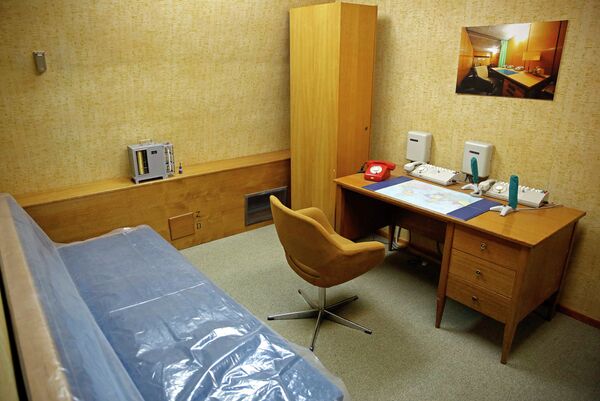
The building of the bunker cost Yugoslavia $4.5 billion.
Above: The office of Josip Broz Tito's Secretary is seen in Tito's underground secret bunker (ARK) in Konjic.
Above: The office of Josip Broz Tito's Secretary is seen in Tito's underground secret bunker (ARK) in Konjic.
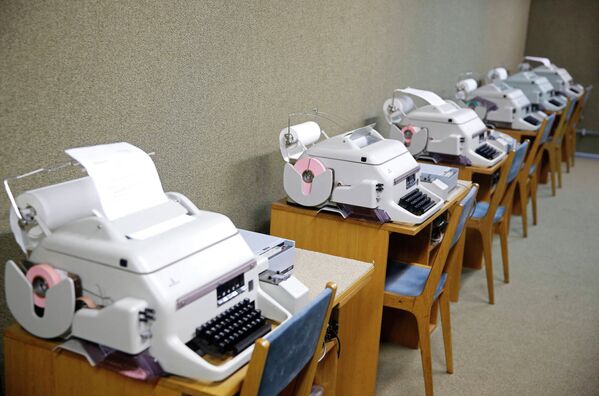
The atomic shelter is located 280 meters underground in the Velebit mountain range in Croatia, near the city of Paklenica.
Above: A fax office is seen in Josip Broz Tito's underground secret bunker (ARK) in Konjic.
Above: A fax office is seen in Josip Broz Tito's underground secret bunker (ARK) in Konjic.
The complex was designed to allow 200 people to live for two years without any support from the outer world.
Above: A meeting hall is seen in Josip Broz Tito's underground secret bunker (ARK) in Konjic.
Above: A meeting hall is seen in Josip Broz Tito's underground secret bunker (ARK) in Konjic.
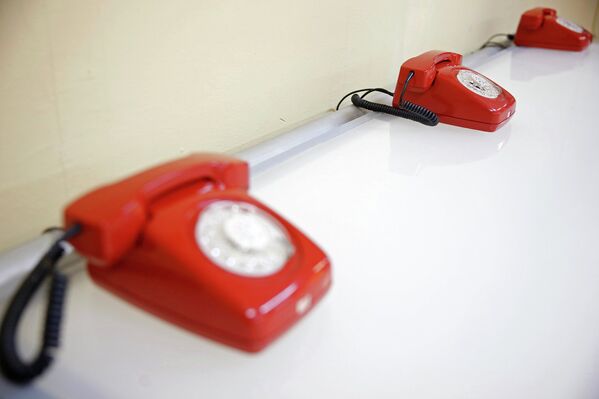
The bunker comprises of 12 areas, connected with each other, and spans 6,500 square meters.
Above: Phones are seen in Josip Broz Tito's underground secret bunker (ARK) in Konjic.
Above: Phones are seen in Josip Broz Tito's underground secret bunker (ARK) in Konjic.
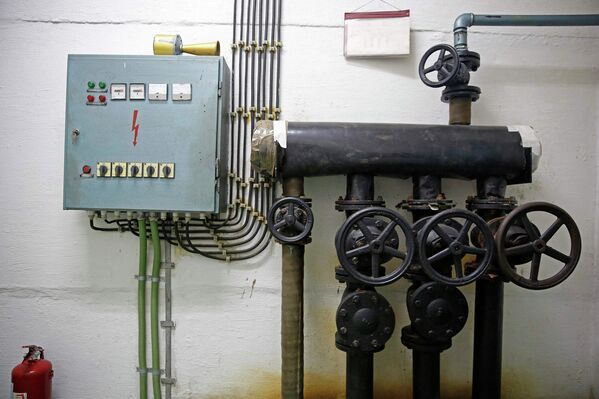
The bunker was equipped with diesel-generators, a stockpile of food, water and medicines. The shelter also had its own air conditioning system.
Above: Water switches are seen in Josip Broz Tito's underground secret bunker (ARK) in Konjic.
Above: Water switches are seen in Josip Broz Tito's underground secret bunker (ARK) in Konjic.
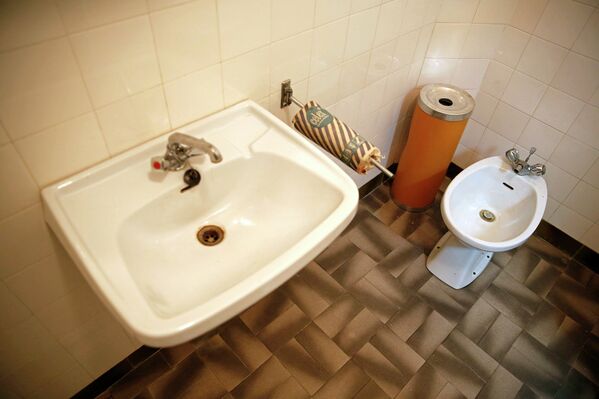
The shelter was designed with 100 bedrooms and the "presidential bloc" containing private quarters built just for Tito with a king-size bed and an en-suite bathroom.
Above: Josip Broz Tito's private toilet is seen in his underground secret bunker (ARK) in Konjic.
Above: Josip Broz Tito's private toilet is seen in his underground secret bunker (ARK) in Konjic.
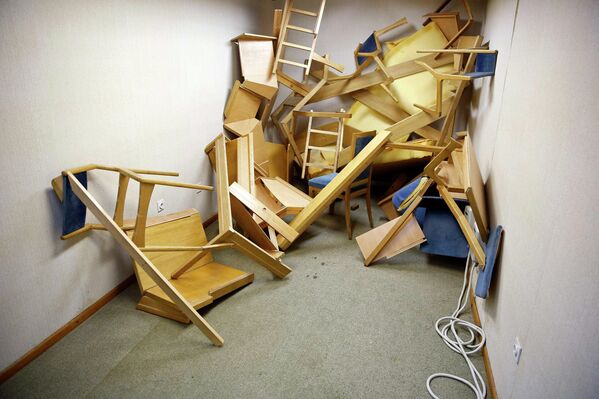
After the breakup of Yugoslavia occurred, the bunker was not guarded for a while. In 1994, NATO forces took control of the complex.
Above: Damaged chairs are seen in Josip Broz Tito's underground secret bunker (ARK) in Konjic.
Above: Damaged chairs are seen in Josip Broz Tito's underground secret bunker (ARK) in Konjic.
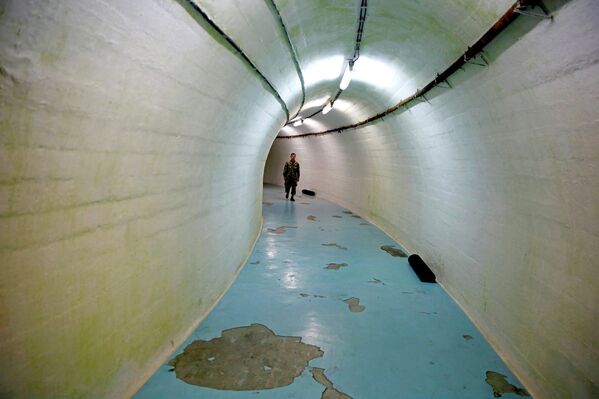
On May 27 2011, the government of Bosnia and Herzegovina handed the bunker over to local artists as a picture gallery.
Above: A member of the Armed Forces of Bosnia and Herzegovina walks through a tunnel in Josip Broz Tito's underground secret bunker (ARK) in Konjic.
Above: A member of the Armed Forces of Bosnia and Herzegovina walks through a tunnel in Josip Broz Tito's underground secret bunker (ARK) in Konjic.

